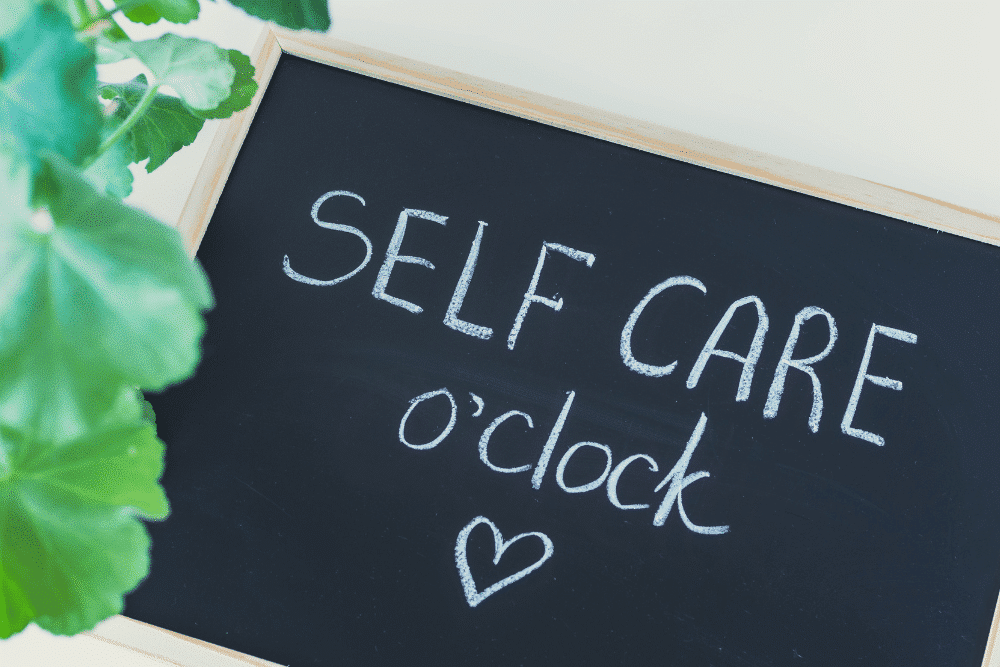

In the world of life coaching, where the primary focus is on the welfare and personal development of others, it’s easy for coaches to overlook their own self-care. As a life coach, you dedicate your time and energy to helping your clients navigate the complexities of their lives, but it’s essential to remember that you must take care of yourself and your own needs first.
In this blog post, we’ll explore the significance of self-care for life coaches and provide you with actionable strategies to prevent burnout and maintain a fulfilling coaching practice.
Burnout is a state of emotional, mental, and physical exhaustion caused by excessive and prolonged stress. This phenomenon can significantly impact life coaches, both professionally and personally.
The detrimental effects of burnout include decreased productivity, a negative impact on the quality of coaching sessions, strained relationships, and a decline in one’s overall well-being.

Before we delve into the self-care strategies that can help prevent burnout, it’s crucial to recognize the signs and symptoms that may indicate you’re headed in that direction.
These can include:
If any of these symptoms sound familiar, it’s time to take care of yourself, prioritize self-care and implement strategies to prevent burnout.
Self-care is not just a trendy buzzword; it’s a fundamental necessity for life coaches. To provide a quality service to your clients, you need to be in your best possible state.
Here are some core principles of self-care:
Lead by example; prioritize self-care and incorporate it into your daily routine and everyday life. Those you coach will appreciate the authenticity of your self-care journey.
Understand that you can’t pour from an empty cup. Adjust your workload and client load to ensure you have the energy and time for self-care.
Take time to check in with yourself, identify your stressors, and adjust your self-care routine accordingly.
Invest in your professional advancement, acquire new skills, and stay updated with the latest coaching techniques. This can boost your confidence and enthusiasm for your work.
Now, let’s explore some strategies and self-care activities…

As a life coach, you’re dedicated to the personal growth of your clients. While your empathy and commitment to their success are important, it’s equally crucial to safeguard your own emotional and mental health.
This is where setting boundaries becomes a cornerstone in the foundation of your self-care regimen. Here’s how you can strike the right balance and navigate the delicate art of setting boundaries:
Understanding your emotional and time limits is the first step in effectively managing your boundaries. While it might be tempting to go above and beyond for those you work with, overextending yourself can lead to burnout.
Here’s how to maintain this balance:
Clear and kind communication is key to establishing and maintaining boundaries with those you work with. When your clients understand your availability and limitations, it not only benefits you but also enhances their experience. Here’s how to communicate your boundaries effectively:
Empathy is undoubtedly a valuable skill for every coach. It allows you to connect with those you work with on a deeper level and offer them the support they need. However, it’s imperative to strike a balance between empathy and self-preservation. Here’s how to navigate this fine line:
Setting boundaries is a vital aspect of self-care. It not only protects your emotional and mental health but also enhances the quality of the coaching experience you offer.
By knowing your limits, communicating effectively, and balancing empathy, you can create a healthier and more sustainable practice.
Remember, by taking care of yourself, you can offer more to those who rely on your guidance and expertise.

As a coach, your emotional and physical well-being are at the core of your effectiveness and longevity in this rewarding profession. Mindfulness, meditation, and maintaining physical health are not just nice-to-haves but are vital components of your self-care toolbox.
These practices are the anchors of emotional health. By incorporating them into your daily routine, you can experience a range of benefits that directly impact your skills and the quality of the service you provide.
These benefits include:
Incorporating these practices into your daily routine is easier than you might think. These simple yet transformative exercises can be seamlessly woven into your schedule:
Your body is the vessel that houses your mind and emotional welfare. So, the connection between your physical state and coaching effectiveness is undeniable. To maintain peak performance in your practice, consider these tips:
Your clients depend on your guidance, empathy, and support. To provide them with the best possible assistance, you must prioritize your own emotional well-being through mindfulness, meditation, and physical health practices.
By nurturing your whole self, you not only enhance your skills but also ensure your longevity and effectiveness in this deeply fulfilling profession.

In the dynamic world of coaching, managing your time, setting priorities, and making efficient use of tools and resources is paramount to maintaining a thriving and balanced business.
In this section, we’ll explore how these aspects work in synergy to help you avoid burnout and achieve lasting success.
Time management and prioritization are the bedrock of any successful business. Here’s how you can master these vital elements:
For a more in-depth exploration of time management and productivity tools, you might also like to read the following article: “The Best Productivity Tools to Streamline Your Coaching Business.”
In the life coaching world, where your emphasis should be on guiding and supporting your clients, administrative tasks, content creation, and resource management can become overwhelming.
Delegation may seem counterintuitive for a profession built on personalized guidance, but it’s a strategic move if you want to be a successful life coach. Here’s why:

When you’re a life coach, the use of professional templates and tools is a game-changer. These valuable assets are designed to streamline various aspects of your practice, providing a valuable toolkit to enhance efficiency and effectiveness.
Here’s how they can assist you:
In short, by mastering these aspects, you not only avoid burnout but also create a more fulfilling journey for both you and your clients. With a well-organized and balanced approach, you can continue to provide top-notch support while nurturing your own growth.

Life coaching is a fulfilling and rewarding career, one that allows you to empower others to achieve their dreams and live their best lives. However, this journey can be a marathon rather than a sprint.
To ensure your lasting success, it’s crucial to develop a sustainable self-care plan that nourishes your passion for the long term.
Here’s how to cultivate your career with a focus on ongoing self-care:
Your self-care journey is not a one-time endeavour but a lifelong commitment. Regularly assess and reassess your plan to ensure that it remains aligned with your changing needs and circumstances.
Life is dynamic, and what works for you today may not be the same as what you need tomorrow. Here’s how to maintain your self-care plan:
Sustainability in your coaching career relies on your adaptability and flexibility. The landscape is ever-evolving, and your ability to adjust and grow is essential.
Here’s how to maintain a flexible mindset:

Sustainability is not a solo journey. Building a strong network can significantly contribute to your long-term success and passion for coaching.
Here’s how to establish and nourish your support system:
In the pursuit of long-term sustainability, don’t forget to celebrate your milestones and successes. Acknowledging your achievements and the positive impact you’ve had can reignite your passion for coaching.
Here’s how to celebrate your journey:
In summary, long-term sustainability in your life coach career is not only possible but crucial. Remember, as you invest in your own sustainability, you are better equipped to empower others to create lasting, positive change.
Your journey as a life coach is a marathon, and with the right self-care practice, you’ll thrive for the long haul.

As we reach the conclusion of our exploration into the world of self-care for life coaches, it’s clear that the path to long-term sustainability in this rewarding profession is illuminated by self-awareness, adaptability, and a strong support network.
Recognizing the warning signs of burnout and proactively implementing self-care principles, such as setting boundaries, practising mindfulness and meditation, and prioritizing physiological health, are fundamental steps in safeguarding your holistic health.
Furthermore, mastering time management, delegation, and the use of professional coaching templates and resources is fundamental to creating an efficient and balanced business. To achieve lasting success, the journey of being a life coach requires ongoing assessment and adaptability, nurtured by continuous self-care.
Building a network and celebrating your milestones along the way reinforces your passion for coaching and empowers you to guide others on their transformative journeys.
In embracing these principles, you not only secure your future in the profession but also enhance your ability to empower others to lead their best lives.

At Life Coach Freedom, we understand the demands and challenges life coaches face in their day-to-day practice.
That’s why we offer a comprehensive selection of Coaching Templates and resources that can be a lifeline for your business.
These valuable assets are carefully curated to support you in running your business efficiently and help you avoid burnout.
This also ensures that you can direct your energy where it matters most – guiding individuals toward their best lives while maintaining your own well-being.
Your success is our success, and together, we can create a more fulfilling journey for both you and those you guide.
Explore my collection of Coaching Tools and Resources here.
All the best!
Libby Hogan,
Digital Resource Specialist
Life Coach Freedom
If you’re passionate about coaching and hungry for valuable insights, expert tips, and the latest updates, look no further! Subscribe to our newsletter for exciting updates and subscriber-only discounts, promotions & resources.
"*" indicates required fields

Hi there, I'm Libby
The creative mind behind Life Coach Freedom
My ultimate goal is to help you ditch the drama around running your coaching business, enabling you to reach more clients and cultivate both a fulfilling & thriving practice. And in doing so, have a successful business that gives you the freedom to create the life you want.
I trust you will find the articles on this page useful, and if there’s a topic you would like to know more about, I would love to hear from you!

Free Download!
The 4 key elements you need to create a successful coaching website
"*" indicates required fields
Related Posts

Discover the 10 essential elements for crafting standout life coaching websites that not only attract visitors but convert them into clients.

Explore the significance of self-care for life coaches and learn how to implement actionable strategies to prevent burnout & achieve lasting success.

Discover the power of productivity tools in your coaching journey! Get organised, save time, simplify tasks, boost client interactions, and grow your business.

Life Coach Freedom offers done-for-you coaching tools, templates and niche websites to help you build a successful coaching business. Our ultimate goal is to save you time, money & energy so you have the freedom to create the life you want.
Handy Links